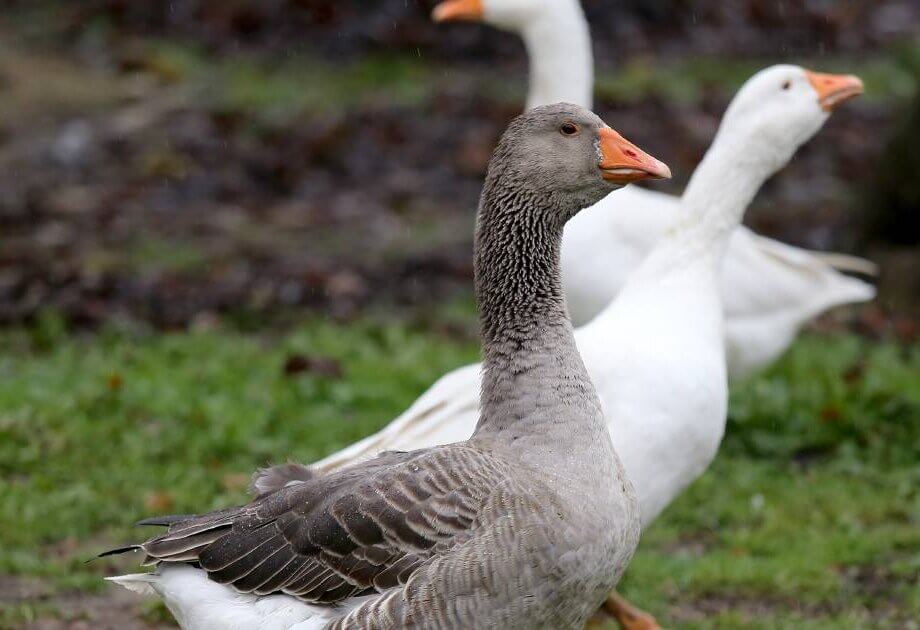The Rise of Guard Geese in South Korea
In recent months, South Korea has witnessed a surprising trend: the deployment of domestic geese as security guards at farms, factories, and even industrial facilities. While the idea of a goose standing sentry may seem unusual, these so-called “goose agents” are gaining popularity for their effectiveness, affordability, and unique advantages over traditional guard animals like dogs.
- The Rise of Guard Geese in South Korea
- Why Are Geese Effective Guard Animals?
- Global Examples: From Brazilian Prisons to Chinese Borders
- How to Train and Care for Guard Geese
- Benefits and Challenges of Using Geese for Security
- Historical and Scientific Context: Why Geese Make Good Guards
- Comparing Geese to Other Security Methods
- Legal and Ethical Considerations
- In Summary
Several high-profile cases have brought attention to this phenomenon. In Pyeongtaek, Gyeonggi Province, a steel factory owner named Jeong Tae-ho turned to geese after repeated thefts plagued his business. “Repeated thefts were giving me headaches, and an acquaintance suggested I should get geese. They cost less than Jindo dogs (a loyal and ferocious indigenous Korean breed), and are easier to manage,” Jeong explained. The factory purchased four geese for nighttime security, and the results have been promising.
Elsewhere in Yangju, also in Gyeonggi Province, a farm reported that its guard geese chased away a trespasser in a car. The farm owner described the male geese’s loud honking and aggression as “beyond imagination.” These stories are not isolated incidents but part of a growing movement in rural South Korea to use geese as a cost-effective and reliable security solution.
Why Are Geese Effective Guard Animals?
Geese possess several natural traits that make them surprisingly effective as guardians. Their loud, distinctive honking can be heard from a considerable distance, serving as an early warning system for property owners and neighbors alike. Geese are highly territorial and will defend their space vigorously, often confronting intruders with physical aggression using their wings and beaks.
Unlike dogs, which may sometimes bark for attention or play, geese are more selective and only sound the alarm when they perceive a genuine threat. This makes their alerts more reliable in certain contexts. Their excellent eyesight and hearing allow them to detect movement and unusual sounds from afar, and their ability to distinguish between familiar people and strangers adds to their effectiveness.
Historically, geese have been used for security for thousands of years. One of the earliest recorded instances dates back to 390 BC, when geese in ancient Rome reportedly saved the city from a surprise attack by alerting the guards with their honking. This reputation for vigilance has persisted through the centuries, with geese being used to guard everything from Scottish whisky warehouses to military installations.
Global Examples: From Brazilian Prisons to Chinese Borders
The trend of using geese for security is not unique to South Korea. In Brazil, the Sao Pedro de Alcantara prison in Santa Catarina state made international headlines by replacing expensive patrol dogs with a flock of nine geese. The prison director, Marcos Souza, cited cost savings and effectiveness as key reasons for the switch. “The guard dog always took a nap, and it was too expensive to maintain,” Souza told reporters. In contrast, geese are inexpensive to feed, rarely fall ill, and are not easily bribed or distracted.
The geese patrol the area between the prison’s inner fence and outer wall, making deafening noises if anyone tries to escape. Inmates and staff alike have noted the birds’ aggression and unwavering hostility toward strangers. As one inmate put it, “Feeding geese is the scariest thing. When I went inside to fix the door in the past, all the guard geese approached me and attacked me.”
China has also embraced the use of guard geese, particularly along its border with Vietnam. In 2021, the Chinese government deployed a “geese army” of about 500 birds across 300 miles of border to help enforce its zero-COVID policy and prevent illegal crossings. The geese, working alongside guard dogs, have proven highly sensitive to strangers and noise, often outperforming their canine counterparts in detecting intruders.
These international examples highlight the versatility and effectiveness of geese as security animals, especially in environments where cost, reliability, and low maintenance are priorities.
How to Train and Care for Guard Geese
For those considering geese as part of their security system, proper training and care are essential. Geese are naturally territorial, but their effectiveness can be enhanced through basic obedience training and positive reinforcement. Teaching geese to recognize boundaries and rewarding protective behaviors helps reinforce their role as guardians.
Choosing the right breed is also important. Popular breeds for security include Toulouse, Embden, and Chinese geese, all known for their large size and assertive nature. The enclosure should be secure and predator-proof, with ample space for the geese to roam and access to fresh water and grazing areas. Regular maintenance, health checks, and proper nutrition are necessary to keep the birds healthy and alert.
Integrating geese into an existing security system can provide an added layer of protection. They can work alongside dogs, alarms, or surveillance cameras, acting as an early warning system that alerts both humans and other animals to potential threats. However, it is important to introduce geese gradually to other guard animals to prevent conflicts and ensure a harmonious working relationship.
Benefits and Challenges of Using Geese for Security
The primary benefits of using geese for security are their cost-effectiveness, low maintenance, and natural vigilance. Geese require minimal care compared to dogs, do not need expensive food or veterinary services as frequently, and are less susceptible to bribery or distraction. Their loud honking serves as a powerful deterrent to would-be intruders, and their territorial instincts make them reliable sentinels.
However, there are challenges to consider. Geese can be aggressive, sometimes attacking humans who enter their territory, including authorized personnel. Their loud noises, while useful for security, can lead to noise complaints from neighbors, especially in more densely populated areas. Maintaining a clean and secure enclosure requires ongoing effort, and legal regulations regarding the keeping of geese may vary by region.
Liability is another concern, as geese have the potential to cause harm if they feel threatened or are provoked. Property owners should ensure they have appropriate insurance coverage and are aware of local laws governing the ownership and use of guard animals.
Historical and Scientific Context: Why Geese Make Good Guards
The use of geese as guards is rooted in both history and biology. Geese have been domesticated for thousands of years, possibly making them the second oldest domesticated animal after dogs. Their keen senses—especially eyesight and hearing—are highly developed, allowing them to detect predators and intruders with remarkable accuracy.
Geese can control each eye separately and even leave one side of their brain awake while sleeping, a phenomenon known as unihemispheric slow wave sleep. This allows them to remain vigilant even at rest. Their territorial nature means they will defend their nesting area aggressively, and their ability to recognize familiar humans makes them less likely to attack those they know.
In military history, geese have been used to guard installations and warehouses. During the Cold War, the U.S. Army stationed hundreds of geese at air defense sites in Europe, finding them as effective as dogs for certain security tasks. The “Scotch Watch” in Scotland used geese to protect whisky warehouses for decades, and Chinese border patrols have relied on geese to supplement human and canine guards.
Comparing Geese to Other Security Methods
While geese offer unique advantages, they are not a complete replacement for other security measures. Dogs, for example, can be trained for specialized tasks such as scent detection, search and rescue, and apprehension. Their intimidating presence can deter intruders more effectively in some situations, and their olfactory abilities far surpass those of geese.
However, geese excel as early warning systems and are less expensive to maintain. They are particularly well-suited for rural or semi-rural environments where their noise is less likely to disturb neighbors. In combination with other security measures—such as surveillance cameras, alarms, and human guards—geese can provide a robust, multi-layered approach to property protection.
Legal and Ethical Considerations
Before deploying geese as guard animals, property owners should research local regulations regarding the keeping of geese. Some areas may have restrictions on flock size, enclosure requirements, or noise ordinances. It is also important to consider the welfare of the animals, ensuring they have adequate space, shelter, and care.
Ethically, using geese for security should not compromise their well-being. Regular health checks, proper nutrition, and humane treatment are essential. Owners should also be mindful of the potential for geese to become aggressive and take steps to minimize risks to visitors and authorized personnel.
In Summary
- South Korea is experiencing a rise in the use of domestic geese as guard animals at farms and factories, driven by their effectiveness and affordability.
- Geese are naturally territorial, have excellent senses, and produce loud honking that serves as an early warning system against intruders.
- International examples from Brazil, China, and historical cases in Europe and the U.S. military demonstrate the global appeal and effectiveness of guard geese.
- Proper training, care, and integration with other security measures are key to maximizing the benefits of geese as guardians.
- Challenges include potential aggression, noise complaints, maintenance requirements, and legal considerations.
- Geese are best used as part of a multi-layered security system, complementing but not replacing other methods such as dogs, alarms, and surveillance technology.












